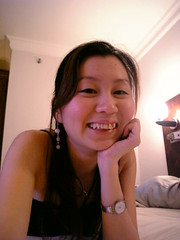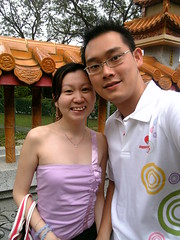Some time back, I was reading one of his short story called "The Star".
"In the Hugo Award-winning "The Star," scientists explore the remains of a complex civilization destroyed by a supernova thousands of years earlier. The nova, we discover, was the very same star that lit up the night sky over Bethlehem, heralding the birth of Christ. A poignant, beautifully composed story, "The Star" remains one of Clarke's most memorable achievements." - Barnes and Noble
It's an amazing story which I totally fell in love with, so much so that I went to type out the story word for word. I know this is kinda against IP laws and stuff like that, but I just love the story and have to have a copy of it somewhere. It's just for personal viewing and I will buy the book that have this story, if I can find it.. Sometimes it's darn hard to collect short stories coz they appear everywhere and nowhere.
I'm reading another story of his, Sunstorm. In this story, he talked about how a major solar flare caused a massive geomagnetic storm on earth which temporarily lays waste to the world's electronic infrastructure. But the electronic infrastructure was not the only things that the geomagnetic storm affected. Back in 4BC, a similar storm took place.. .. "And in a shabby room in Bethlehem, a newborn child, laying on dirty hay, stirred and gasped, tormented by images He could not comprehend."
It's interesting to see the way Clarke deals with religion, or more so, zealots, creationist and the lot. Instead of adamantly opposing them like Isaac Asimov (I remember reading an article he wrote that touched on the zealots, and how he slam against their arguements that the world was created by God in 7 days.. That was classic.), he takes a more neutral ground, at times even explaining their zealous behavior with science. Like in this story, how electromagnetic fields caused normal people to become zealots. It's not a big part of the story, but it's there.
Clarke have a superb way of dealing with religion and yet not offending anyone. Like in Light of Other Days, he talked about the crucification of Jesus, and I thought the way he handled that part of the book was superb. He gave a plausible scenario without offending anyone.
That's the way of a true master.

Monday, March 06, 2006
Subscribe to:
Post Comments (Atom)





1 comment:
Nice !!
Post a Comment